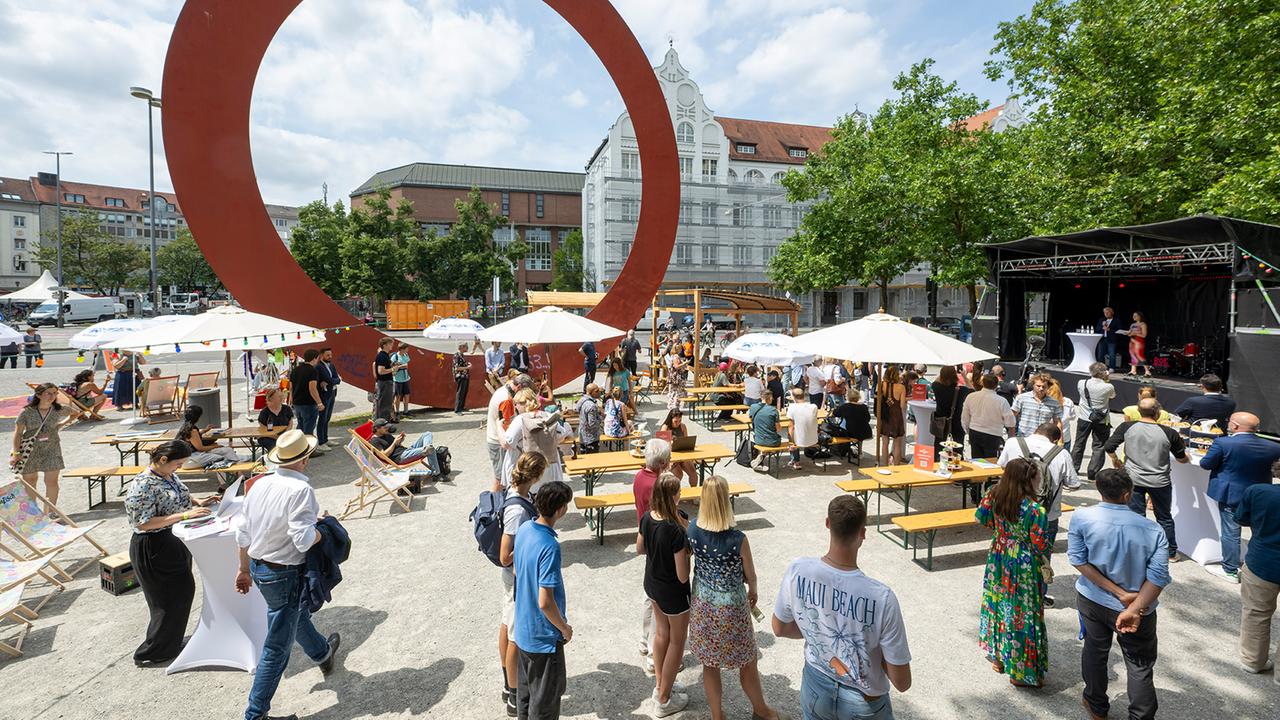The trend towards non-alcoholic beer continues: an alcohol-free beer garden recently opened in Munich. Within ten years alone, the production of non-alcoholic beer in this country has doubled.
The name itself is telling: “Die Null” – that's the name of Munich's first alcohol-free beer garden, which opened its doors in July. You're unlikely to find drunk, staggering guests here, as the beer garden near the main train station only serves beer without alcohol.
Initially expected to be open until September 15th, “Die Null” is organized by two restaurateurs and a cultural worker. Their goal: to improve the station district. So is no alcohol a solution after all?
Opening of the first alcohol-free beer garden in Munich.
Almost every tenth beer is non-alcoholic
In any case, “no alcohol” is a trend that the beverage industry can no longer ignore. Long derided as “driver's beers”, almost one in ten beers sold in this country is non-alcoholic. According to calculations by the German Brewers' Association, German per capita consumption in 2023 was 88 liters of beer, of which almost 8 liters were non-alcoholic.
Last year, larger companies with more than 20 employees produced 556 million liters of non-alcoholic beer worth 548 million euros, according to the Federal Statistical Office. That was 17 percent more than the year before – and more than double the amount from 2013.
However, alcohol is still allowed in non-alcoholic beer. Up to 0.5 percent is tolerated, as this amount has no detectable effect on people who are sensitive to alcohol. Only beers that are labeled as containing 0.0 percent alcohol actually contain no alcohol at all.
Non-alcoholic beer displaces wheat beer from third place
During the same period, the amount of alcoholic beer decreased by 14 percent. However, the amount of 7.2 billion liters in 2023 still meant more than twelve times the non-alcoholic supply. Beer mixed drinks have increased by 11 percent to around 363 million liters since 2013.
According to the Brewers' Association, the most popular type of beer in Germany by far remains Pils with a market share of almost 50 percent. In second place are light beers with ten percent and in third place are non-alcoholic beers with eight percent. They have displaced wheat beer, which has a market share of six percent.
Is non-alcoholic beer better today?
But why is non-alcoholic beer becoming more and more popular? The trend towards non-alcoholic varieties can generally be explained by the fact that many people have a healthier and more active lifestyle. Especially since non-alcoholic beer usually has significantly fewer calories than the “spirited” version.
The managing director of the Bavarian Brewers' Association, Walter König, points to the scientific and technological effort that has been made to improve the taste. “The standard is high,” said Stiftung Warentest in May, praising the non-alcoholic beers. Of the 20 brands examined, a dozen could be recommended with the verdict “good.”
Companies are betting on zero alcohol trend
Meanwhile, the big companies have of course long recognized the trend towards non-alcoholic beer. For example, Anheuser-Busch Inbev – the world's largest brewery group with brands such as Beck's, Löwenbräu, Franziskaner, Bud and Corona – has a global goal firmly in its sights: by the end of 2025, every fifth beer in the company's global range should be non-alcoholic or at least have a reduced alcohol content.
Meanwhile, growth rates are “not in sight” for the German beer market, explained the German Brewers' Association. In the first half of the year, beer sales fell by 0.6 percent to around 4.2 billion liters, according to the Federal Statistical Office in Wiesbaden. In June, the month when the European Championships began, only 777 million liters were sold – it was “the lowest result in a June since 1993.” According to the authority, the unstable weather also contributed to this. However, non-alcoholic beers are not included in the statistics published yesterday.




